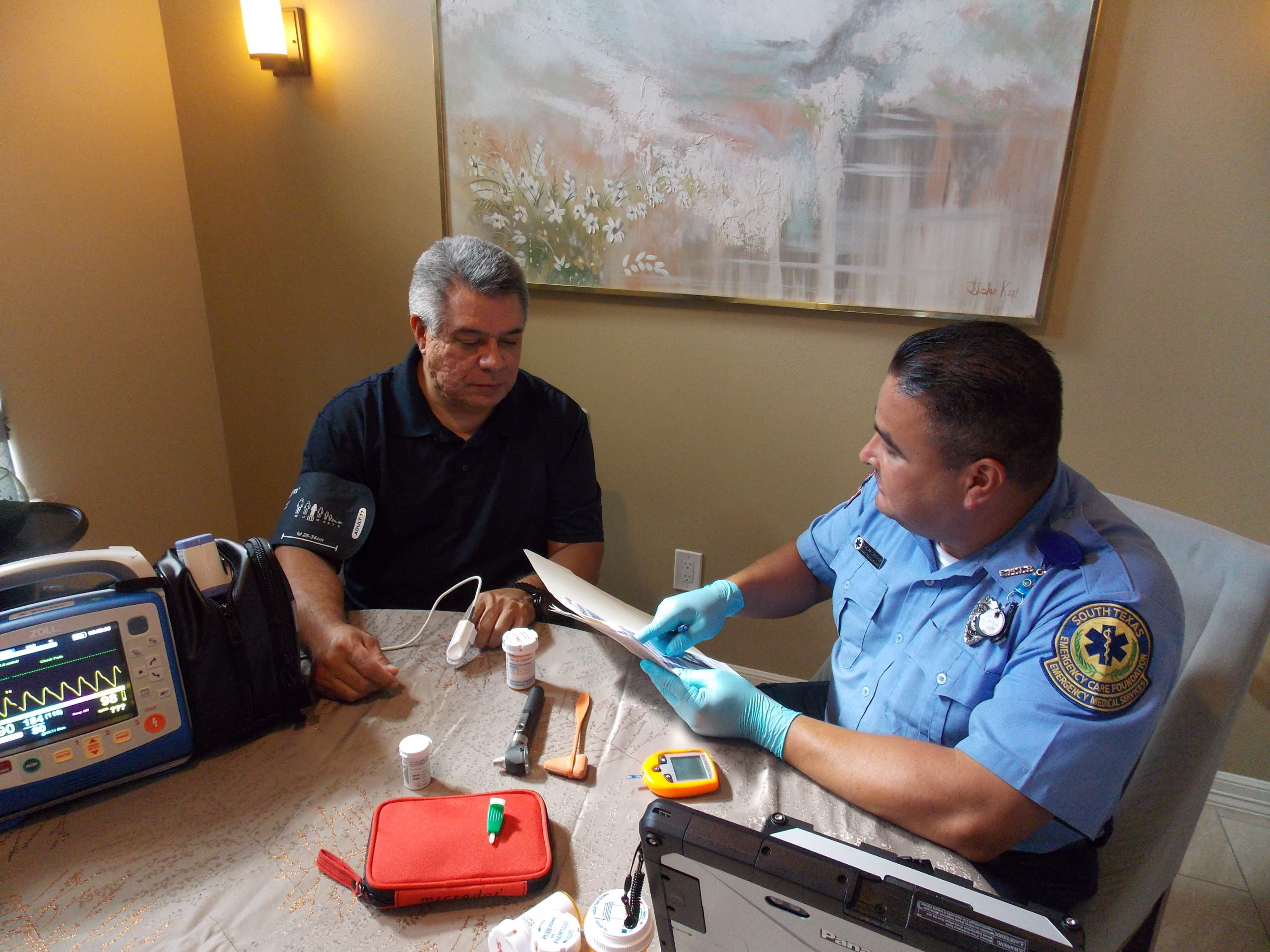What is Community Paramedicine?
Community Health Paramedicine (CHP) is an innovative healthcare delivery model intended to serve a range of patients in the out-of-hospital setting. With the increasing cost and demand for health care, Emergency Medical Services (EMS) agencies across the country are thinking outside the box and seeking ways to decrease the cost and better serve their communities. Not only have these programs resulted in a decrease in medical cost, but they have improved the health of those participating in the areas where they have been utilized. CHP brings primary and preventative care to the patient’s home by referrals from patient’s Primary Care Physician, Hospital Case Manager, Discharge Planner, and Social workers.


Community Health Paramedic Division:
South Texas Emergency Care Foundation created the first Community Health Paramedicine program in South Texas. The program uses Community Health Paramedics from the South Texas Emergency Care Foundation who undergo extensive training to become Certified Community Health Paramedics. The
Community Health Paramedic Division works under a Medical Director and patients’ Primary Care Physician which allows the Community Health Paramedics to work in an expanded role. The Community Health Paramedic will be visiting patients at home, and those visits are individually tailored to meet the needs of our patients which may include the following topics:
- Chronic disease monitoring and management
- Medication inventory and compliance
- Physical exam
- Patient assessment
- ECG and 12 lead ECG
- Glucose checks
- Ultrasound monitoring
- Fall safety and hazard checks
- Wellness checks
Goal:
For patients to obtain self-management of their health and medication compliance upon the completion of the Community Paramedicine Program. To improve an already high standard of patient care for the citizens in our service area. Reducing the cost of patient care by decreasing repeat hospital admissions and informing patients about community programs. Possible patients may include, but are not limited to, COPD, CHF, diabetes, high risk falls, high risk of hospital re-admission and lack of family support.


